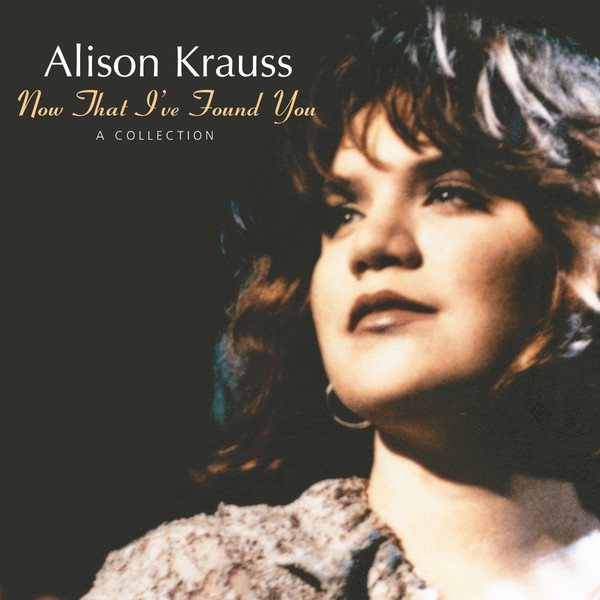Now Playing
Current DJ: CHIRP DJ
John Coltrane Cousin Mary from Giant Steps (Atlantic) Add to Collection
Requests? 773-DJ-SONGS or .(JavaScript must be enabled to view this email address)
 By Josh Friedberg
By Josh Friedberg
Alison Krauss has been recording bluegrass, country, and pop since she was a teenager, and her 1995 compilation, Now That I’ve Found You: A Collection, first exposed her to a mass audience years before her appearance on the smash soundtrack to the Coen brothers’ movie O Brother, Where Art Thou?
For millions of country fans, including my mother, Now That I’ve Found You introduced them to one of the most beautiful voices of the last generation. I heard this album when I was a kid, and I was drawn to the quiet, largely acoustic sound, which reminded me of a variation on the ‘60s folk in my parents’ record collection.
Hearing it now after seeing the CD at a library, I’m amazed at how well it holds up. I’ve generally enjoyed this collection more than the O Brother, Where Art Thou? soundtrack, despite Krauss’s excellent contributions on that album. Now That I’ve Found You is gorgeous and intimate, containing moments of both older and more contemporary styles.
It’s hard to imagine, but her new direction—more pop-sounding, with drums, electric guitar, and little of her previous signature bluegrass fiddle—troubled some at the time. Entertainment Weekly lamented this direction in their review of Now That I’ve Found You, but the industry very much rewarded her. To date, Krauss has received over 25 Grammy awards and largely dominated the bluegrass sales market.
Her version of Keith Whitley’s hit, “When You Say Nothing At All,” originally recorded for a 1994 tribute album to the late country star, received its greatest exposure on Now That I’ve Found You, and it won a Country Music Association (CMA) award for Single of the Year in 1995.
Listening to the album, I’m struck by the continuity among the tracks from different periods in Krauss’s career despite the differences in instrumentation and vocal style across different tracks. Immediately apparent from the opening title track, a superior cover of the Foundations’ ‘60s hit, is Krauss’s new adoption of her trademark hushed, intimate vocal style. This is most apparent on the closing “When You Say Nothing At All,” which is one of my favorite records about love ever made: a hall of fame performance from Krauss whose intimate performance matches the idea of implicit communication in the lyrics, which scholar Nadine Hubbs argues is characteristic of country music and white working class culture in the U.S.
Krauss’s voice has often been called angelic, and when she hits certain notes on “When You Say Nothing At All,” I still get chills over 20 years after having initially heard it. I first heard this album from a cassette tape that my mother played, and though I might critique the abundance of covers—Whitley, the Foundation, the Beatles, Bad Company, and others—Krauss changes the originals enough that she makes them her own.
Listening to it now and knowing more about Krauss’s career, I find this collection highly enjoyable, but idiosyncratic. Others have noted that, for example, her Grammy-winning 1990 song, “I’ve Got That Old Feeling,” is missing, so this has some potentially odd choices taken from multiple albums and projects of which Krauss was not always a leader. For example, her version of the Beatles’ “I Will” is gorgeous, but it’s a surprising choice because it was a guest appearance on another bluegrass artist’s album. “Tonight I’ll Be Lonely Too,” taken from the same album as “I’ve Got That Old Feeling,” is also beautiful, but its youthful, more passionate vocal, full of Dolly Parton-influenced melisma (singing multiple notes for one syllable), may sound out of place compared to the new tracks like “Broadway.”
I highly recommend this collection for Krauss novices, and the track that I most enjoy today is probably “When You Say Nothing At All.”
Next entry: Photos: Classic Album Sunday at Saturday Audio Exchange (2/26/17)
Previous entry: @CHIRPRADIO (Week of March 13)